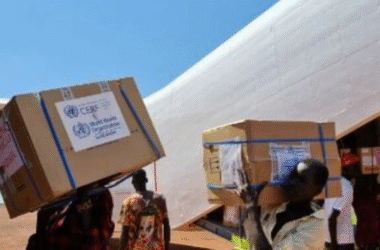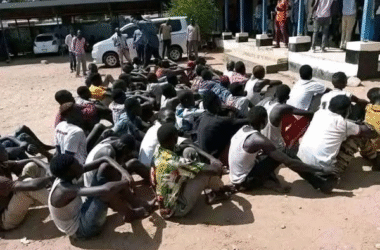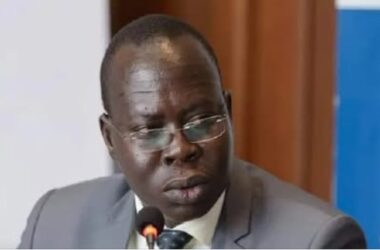By Mamer Abraham
South Sudan’s Minister of Foreign Affairs and International Cooperation, Dr. James Pitia Morgan, has assured the US Ambassador to South Sudan of the country’s readiness for the 2024 elections.
Morgan stated in a meeting with the US ambassador, Michael J. Adler that the country was looking forward to having a new government and a new president at the end of the transitional period.
“He further assured Adler that South Sudan will hold elections by the end of 2024 as stipulated in the roadmap, and by 2025 the country will have a new government elected by the people, and as the President said, there will be no extension,” read the statement from the Foreign Affairs Ministry.
“The roadmap is clear, and the election has to be conducted,” Morgan said.
The minister assured the US Ambassador of his readiness to cooperate with him and other foreign ambassadors currently accredited to South Sudan.
“I’m ready to work with you and all the other ambassadors accredited to South Sudan, and my office will always be open for all the ambassadors.”
The US Ambassador to South Sudan, Michael J. Adler, said he was bound to witness South Sudan holding free, fair, and credible elections.
Last week, the Reconstituted Joint Monitoring and Evaluation Commission (RJMEC) told the parliament that the implementation of the revitalized agreement on the resolution of the conflict in South Sudan was reasonably slow.
Charles Tai Gituai, the RJMEC Interim Chairperson, stated that the parties to the agreement lacked the commitment to set the pace for elections to take place.
“Overall, tasks related to the permanent constitution-making and electoral processes have stalled. And critical benchmarks outlined in the roadmap are yet to be implemented,” Gituai stated.
“In this regard, it is critical to underscore the need for sufficient political will and commitment of resources by the RTGoNU and for the parties to the agreement to build trust and confidence,” he stressed.
On September 8, 2023, the First Vice President, Dr. Riek Machar Teny, said he could not trust elections without security arrangements completed.
Machar said it would be difficult to reach a consensus on elections when the Necessary Unified Forces (NUF) were not deployed and the second batch of the unified forces.
He argued that elections without security might mean nobody would protect ballot boxes and might slide the country into another cycle of violence.
The benchmarks for lifting the arms embargo imposed on South Sudan include the completion of the strategic defense and security review process, the formation of a unified command structure for the necessary unified forces, and the implementation of the action plan for the armed forces on addressing conflict-related sexual violence, all of which revolve around security.




